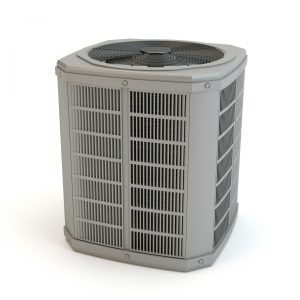As summer temperatures soar, your air conditioner becomes an essential part of maintaining a comfortable home. But what happens when it starts malfunctioning? Should you repair or replace your old air conditioner?
Making the right call depends on several factors, including the age of the unit, the cost of AC repairs in Colorado Springs, and the overall efficiency. Here’s a comprehensive guide to help you decide whether to repair or replace your air conditioner.
Assess the Age of Your Air Conditioner
One of the first considerations is the age of your air conditioner. Most air conditioning units have a lifespan of about 10-15 years. If your unit is approaching or has surpassed this age range, it might be time to consider a replacement. Older units are less efficient and more prone to frequent breakdowns, leading to higher energy bills and repair costs.
Evaluate Repair Costs
When deciding whether to repair or replace your air conditioner, it’s crucial to evaluate the cost of repairs. A good rule of thumb is the “50% rule”: if the cost of repairs is 50% or more of the cost of a new unit, it’s better to replace it. Frequent, costly repairs can quickly add up, making replacement a more economical choice in the long run.
Consider Energy Efficiency
Energy efficiency is another critical factor. Older air conditioners tend to be less energy-efficient, which can significantly impact your utility bills. Modern units come with improved technology and higher Seasonal Energy Efficiency Ratio (SEER) ratings. Replacing an old unit with a high-efficiency model can reduce your energy consumption, resulting in lower utility bills and a smaller carbon footprint.
Check for R-22 Refrigerant
Air conditioners manufactured before 2010 often use R-22 refrigerant, which is being phased out due to its environmental impact. R-22 is increasingly expensive and difficult to find, making repairs costly. If your old unit uses R-22, replacing it with a new model that uses R-410A refrigerant, which is more environmentally friendly and widely available, can be a wise decision.
Assess Performance and Comfort
Consider the overall performance and comfort provided by your current air conditioner. If you notice inconsistent cooling, strange noises, or excessive humidity, these could be signs that your unit is not functioning optimally. Newer air conditioners offer advanced features such as variable speed motors, smart thermostats, and better humidity control, enhancing your comfort and indoor air quality.
Factor in Incentives and Rebates
Replacing your old air conditioner with a new, energy-efficient model might qualify you for various incentives and rebates from manufacturers, utility companies, or government programs. These incentives can significantly offset the initial cost of a new unit, making replacement a more attractive option.
Environmental Considerations
Upgrading to a more energy-efficient air conditioner not only saves you money but also benefits the environment. Newer models consume less energy, reducing greenhouse gas emissions. If you’re environmentally conscious, replacing your old unit with an eco-friendly model aligns with sustainable living practices.
Consult a Professional
Deciding whether to repair or replace your air conditioner can be complex. Consulting a professional HVAC technician can provide valuable insights. They can perform a thorough assessment of your current unit, identify underlying issues, and recommend the best course of action based on their expertise.
For repairs or replacement, you can trust the team at SoCo Heating and Cooling. Contact us today! So Cool, So Cozy.

